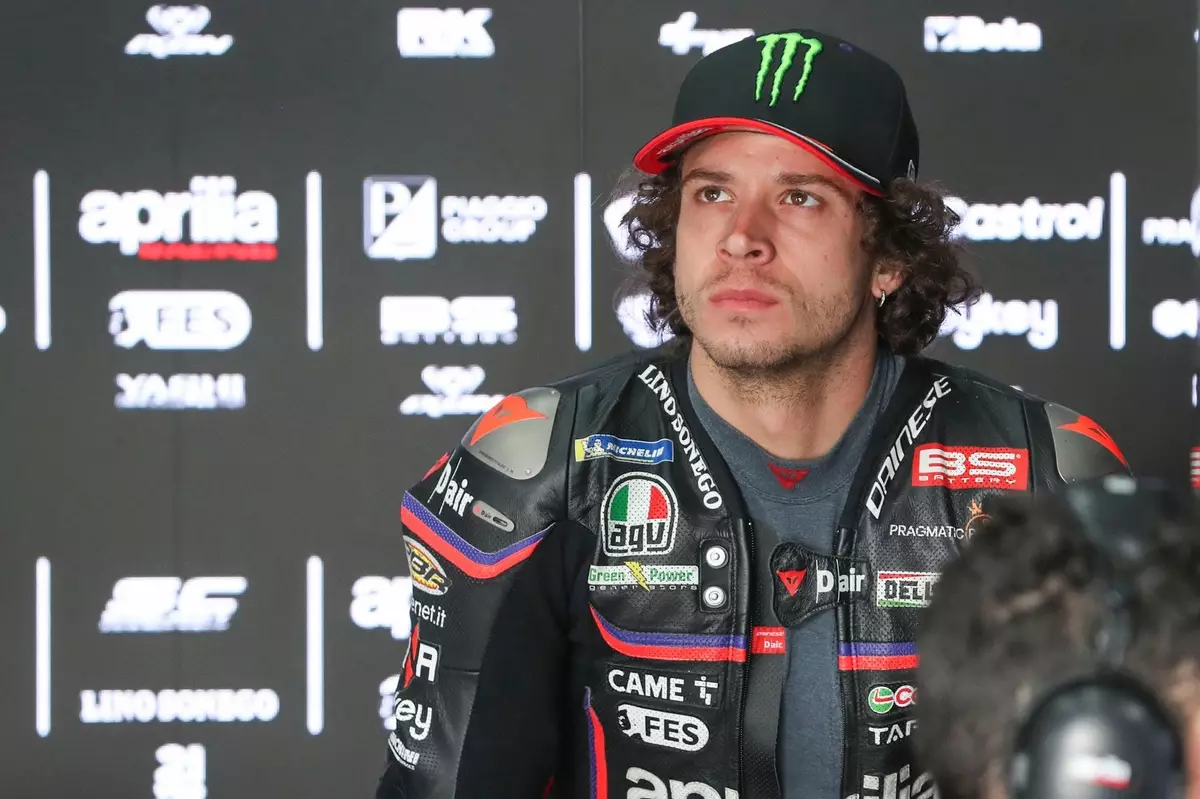In the high-octane world of MotoGP, where every millisecond counts, the presence of a legendary figure like Valentino Rossi remains indelibly influential, even after his retirement from competitive racing. Marco Bezzecchi, an Aprilia factory rider and one of Rossi’s protégé from the VR46 Riders Academy, recently disclosed fascinating insights about the ongoing mentorship he receives from his former boss. This insight not only underscores the enduring bond between rider and mentor but also highlights the intricate dynamics of data and performance analysis in modern racing.
Bezzecchi’s comments during the Spanish Grand Prix reflect a crucial aspect of contemporary racing: the importance of data-driven decision-making. When asked whether Rossi’s support persisted after his transition from the VR46 Ducati team to Aprilia, Bezzecchi acknowledged that their interaction remained robust. Yet, he maintained a degree of ambiguity regarding whether Rossi had access to his telemetry and performance data. This vagueness raises intriguing questions about the intricacies of data sharing and the competitive strategies that teams deploy in a race environment.
The Value of Data in MotoGP
MotoGP’s evolution has made data analysis paramount for competitive performance. The availability of telemetry provides teams with critical insights into their motorcycles’ dynamics and rider performance. However, Aprilia’s strict policy of limiting access to rider data reinforces the competitive edge that teams strive to maintain. The implications of this policy indicate how valuable information is in shaping racing outcomes—access to data can mean the difference between victory and defeat.
Rossi’s extensive experience positions him as a notable figure capable of drawing meaningful conclusions from data, should he have access to it. Yet, with the data-sharing policies and team dynamics at play, it remains uncertain whether Rossi can leverage such insights outside his VR46 team. This highlights the complexities of mentorship in a sport where allegiances may shift and competitive interests often clash.
A Champion’s Presence in the Paddock
Despite having retired, Rossi’s aura continues to captivate fans and riders alike. His attendance at various MotoGP events still draws crowds, reaffirming his status as a sporting icon. However, his infrequent appearances in the paddock since becoming a team manager pose an interesting tension between his legacy and current involvement in the sport. Rossi no longer participates in the whirlwind of race day as he once did, but he remains an essential figure whose insights can significantly impact the careers of younger riders.
His commitment to training young talents at the VR46 Ranch in Tavullia illustrates his enduring passion for the sport and its future. Engaging with the next generation, Rossi reinforces his pivotal role, acting as a bridge between his wealth of knowledge and the aspirations of budding riders. His continued involvement with graduates like Bezzecchi and Franco Morbidelli signifies how mentorship transcends the race track—governing behavior both on and off the motorcycle.
The Dispersing Talent of VR46 Riders
With Rossi’s academy producing riders who are now scattered across various teams and manufacturers, the impact of his training philosophy can be seen in their performances. For instance, Francesco Bagnaia’s success with the factory Ducati team showcases how effective coaching can lead to substantial achievements on the world stage. Yet, as Rossi’s students spread out, it becomes increasingly essential for this network of talent to maintain cohesion and consistently support one another.
Rossi’s apparent choice to remain discreet within the paddock—avoiding the hospitality areas of competing teams—suggests a strategic distancing that allows him to focus on his role as a team leader for VR46. In this capacity, Rossi has the opportunity to foster growth and collaboration among his riders without the interference of loyalty conflicts that could arise by directly engaging with rivals.
The nuances of performance, mentorship, and competition within MotoGP reveal a multifaceted ecosystem where iconic figures like Valentino Rossi continue to wield enormous influence. As the sport evolves, the intertwining of personal connections, data analysis, and competitive strategy will shape not only the trajectories of riders but also the essence of MotoGP itself. Rossi’s legacy is not merely that of a champion but as a guiding force that continues to mold the future of racing.

